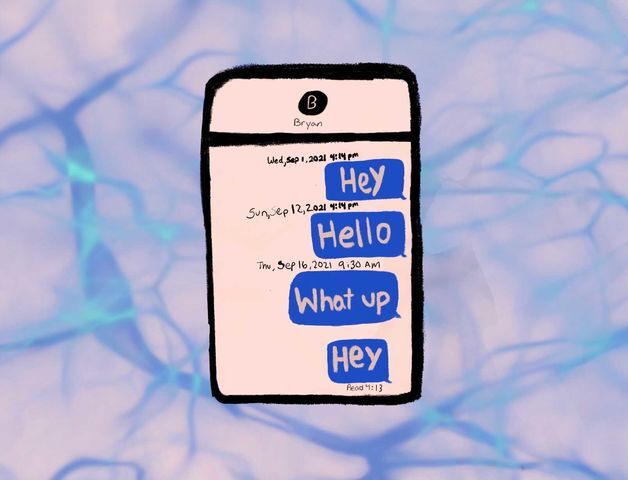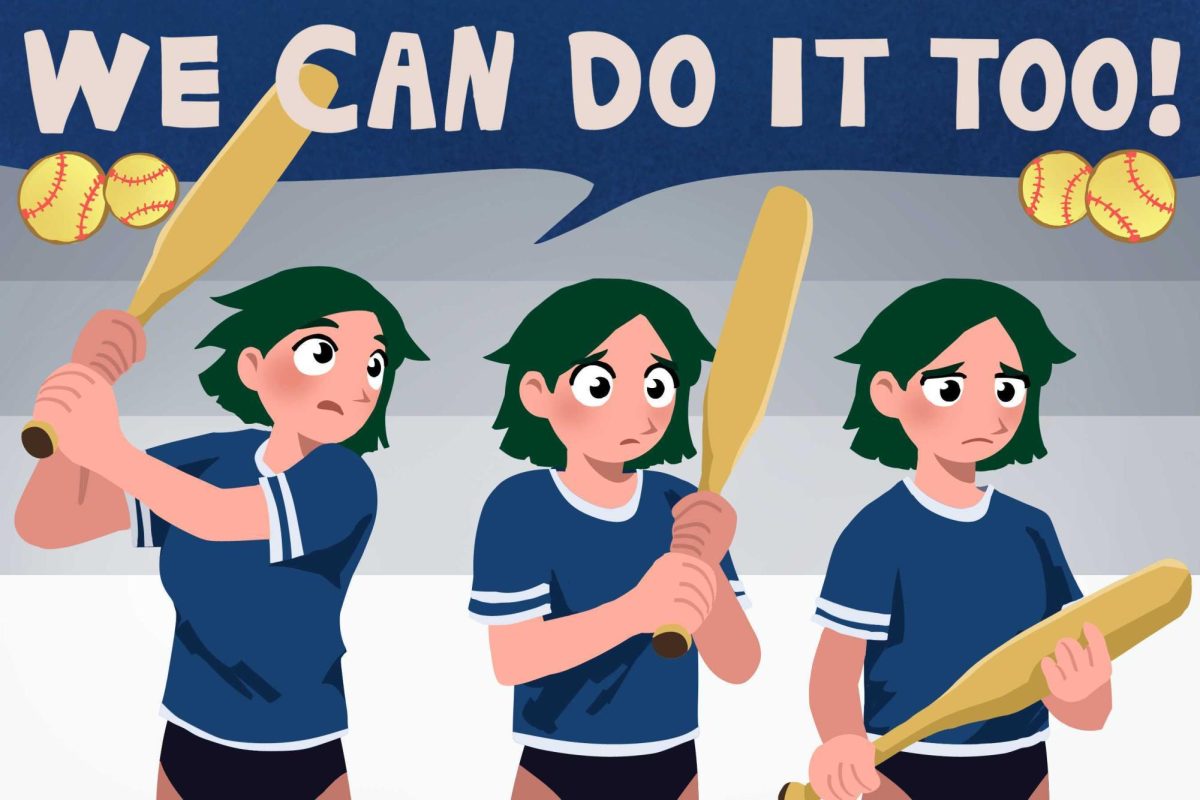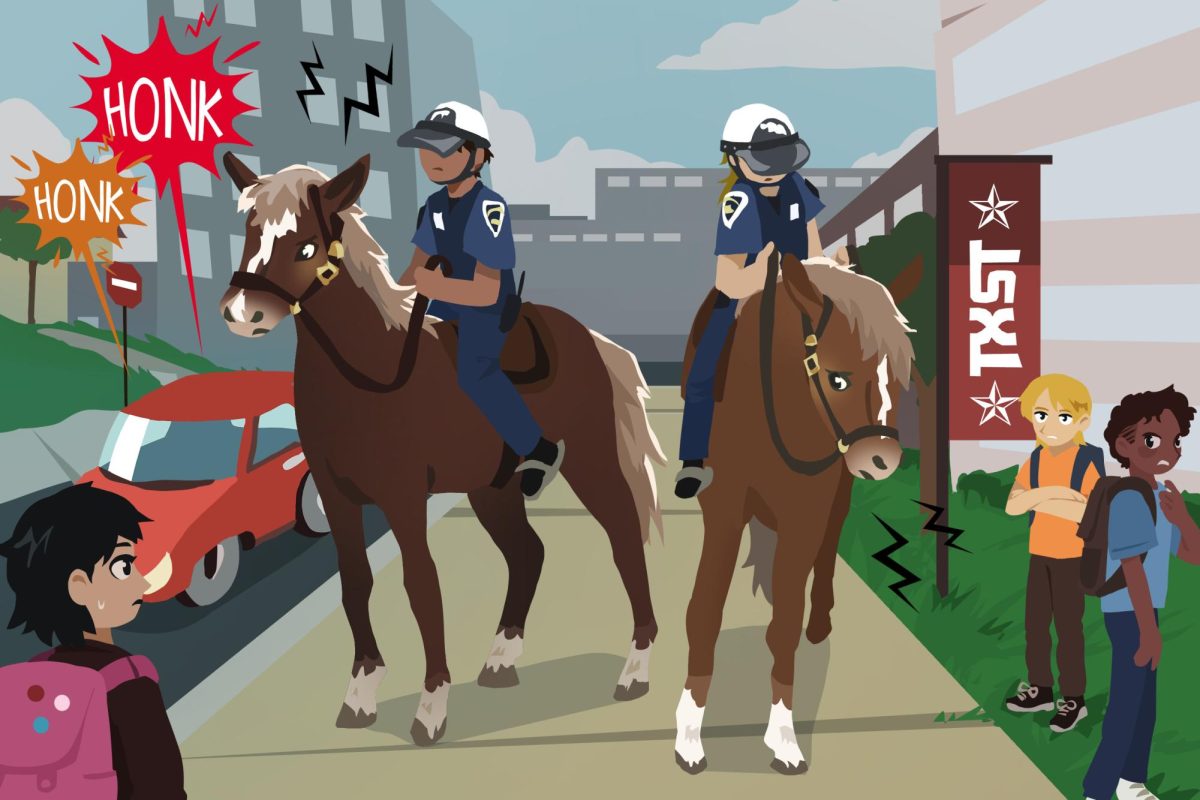Imagine this. Your friend/significant other doesn’t text you back one day. You pay no mind to this, as people can sometimes get busy, and you think they will text back soon enough. But this soon enough drags into days, weeks and finally months. No matter how much you text, call or email, they never respond.
What happened? You have unfortunately been ghosted.
Ghosting is defined as the practice of suddenly ending all contact with a person without explanation. It is nothing new, but its prevalence is common in online relationships. According to a survey by Plenty of Fish, an online dating site, 80% of its users between the ages of 18 and 33 have been ghosted before. Ghosting is so common, MTV even has a show, “Ghosted: Love Gone Missing,” dedicated to helping individuals contact former partners and figure out why they disappeared.
To the person who does the ghosting, they may believe avoiding sticky situations is best for them. No yelling match, drama or tears. In some cases, ghosting could be tied to safety issues such as when someone repeatedly contacts another person after they’ve already expressed their disinterest with them. For friends, it may be too complicated to tell someone they don’t want to be friends anymore. Or, it may be because the person perceives the relationship as toxic. Ultimately we may never know.
What we do know is that the person who ghosted is avoiding confrontation and hurting feelings. People who ghost may generally believe that it is easier to vanish from someone’s life than to have a real discussion.
“I don’t think [ghosting] is the perfect solution to anything, but sometimes it’s what’s needed. I have been ghosted and I have ghosted other people, but I am not proud of it,” Sophia Simpson, a marketing senior, said.
In a 2018 study, 25% of people have been reported being ghosted by a romantic partner and 40% of people have been ghosted by a friend. In the same study, it was found that people who have more of a destiny mindset toward their relationship (i.e., it was meant to be/destiny brought us together) find ghosting acceptable and even do it themselves. Meanwhile, people with a growth mindset, those who believe relationships take time and patience, find ghosting as an unacceptable way to end a relationship. Additionally, in this study, 22% of people who ghost have once been ghosted themselves.
“I was ghosted after telling someone I was starting to catch feelings for them. I feel like most of us have at least been ghosted once,” Yainet Palmero, a criminal justice sophomore, said. “There is no tangible reason behind it, it’s more that the other person’s feelings change, and they move on without communicating it.”
Avoidance/withdrawal is rated as the worst way to end a relationship as it leaves the recipient with greater distress post-breakup, according to a study done on breakup strategies. A direct breakup, like an open discussion, was the most ideal way to end the relationship and left both parties on good terms.
“In my opinion, [ghosting] shows bad communication but it speaks worst of the person [who ghosts]. Anyone who ghosts someone else is a coward,” Palmero said. “Although I’m not the best at communicating my feelings, I am very honest. So, whenever I lose attraction to a previous partner or when it comes to friendships, I tell them that it’s over and give them a reason why.”
I have also experienced ghosting myself. My “best friend” of five years suddenly stopped all communication with me in my junior year of high school. In class, they switched seats away from me, avoided me at lunch and refused to acknowledge me.
The first few days I was confused and hurt. I figured if they wanted to tell me something important, they would. I gave it time. But once three weeks rolled around, I knew the truth. The rest of junior year I spent questioning my worth, my identity and pretty much everything about myself.
It took me two years to stop grieving for a dead friendship. And it took me three years to finally realize that the former friend ghosting me was not my fault.
I am reminded of that pain whenever I see the former friend on campus or like the other day, on the bus. Someday I will forget about that former friend and the wound they left will stop hurting.
People who ghost, besides for safety reasons, are immature and cannot handle responsibility. They could not be an adult and have an honest, open discussion about terminating a relationship. Instead, they run away.
While my therapist says I have trauma from the incident, I will say that it broke my trust in friends but not my hope. Each time I make a new friend I hope that they are mature and comfortable enough, in any setting, to say what is wrong. After all, I cannot read minds.
– McKenzie Siller is a biochemistry junior
The University Star welcomes Letters to the Editor from its readers. All submissions are reviewed and considered by the Editor-in-Chief and Opinion Editor for publication. Not all letters are guaranteed for publication.
Opinion: Ghosting is the cowards way out
September 15, 2021
Donate to The University Star
Your donation will support the student journalists of Texas State University. Your contribution will allow us to purchase equipment and cover our annual website hosting costs.

























